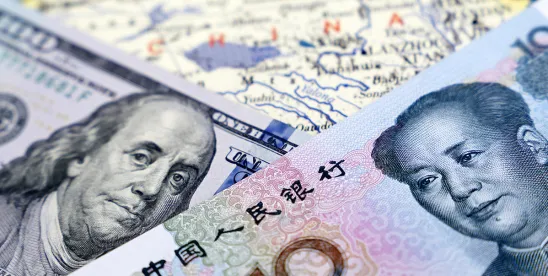| Go-To Guide: |
|
On Sept. 13, 2024, the Biden administration and the Office of the United States Trade Representative (USTR) announced proposed changes to the de minimis duty exception standard and Section 301 tariffs on Chinese goods. These changes come on the heels of increasing pressure for the Biden administration to continue addressing Chinese trade concerns.
Proposed Changes to De Minimis Exception
The de minimis exception, found in Section 321 of the Tariff Act of 1930, currently allows imports valued at less than $800 to enter the United States without duties or a formal entry. In a Sept. 13, 2024, statement, the Biden administration announced that it will issue a notice of proposed rulemaking to amend the current exception to deny goods subject to major trade actions from taking advantage of the de minimis exception and to require more information for all de minimis imports. With this, the administration aims to “enforce our laws and protect American consumers, workers, and businesses by addressing the significant increased abuse of the de minimis exemption.”
Specifically, the forthcoming proposed rules would deny the de minimis exception to goods subject to the Section 301 tariffs on Chinese goods, the Section 232 tariffs on steel and aluminum products, and Section 201 “safeguard” tariffs on products including solar products and washing machines. In addition to restricting the de minimis use, the proposed rulemaking would also require additional information on submissions for de minimis treatment, such as the 10-digit Harmonized Tariff Schedule of the United States code and information on the party receiving the goods.
In the Sept. 13 statement, the White House stated that it would be issuing a proposed rule prior to Biden leaving office, but also encouraged “legislative action by Congress to make this statutory change… to achieve this important reform more quickly.” The administration asked Congress to pass a bill addressing the de minimis concerns, and specifically exclude “import-sensitive” products, such as textile and apparel products, from de minimis eligibility.
Section 301 Tariff Changes
In addition to the proposed de minimis exception changes, USTR also announced its final modifications concerning its statutory review of the tariff actions in the Section 301 investigation. This comes as part of a longer-term modification to Section 301 tariffs, including the May 2024 introduction of significant modifications to the tariff regime.
USTR largely adopted the proposed modifications but announced that certain tariffs on imports from China will increase in 2024, with more Section 301 tariff hikes planned for 2025 and 2026. Proposed increases include:
- 25% to 50% for facemasks beginning in 2026;
- 25% to 50% for medical gloves in 2025, and then to 100% in 2026;
- 50% to 100% for syringes and needles in 2024 but excluding enteral syringes through Jan. 1, 2026.
USTR also announced the implementation of 50% tariffs on polysilicon and wafers.
Tariff increases in 2024 apply to products imported on or after Sept. 27, 2024, increases in 2025 apply to products imported on or after Jan. 1, 2025, and increases in 2026 apply to products imported on or after Jan. 1, 2026.
USTR will allow for 14 Section 301 tariff waivers for specific solar cell and solar wafer manufacturing equipment. These waivers will apply retroactively to Jan. 1, 2024, for products imported through May 31, 2025. USTR removed five types of solar module making equipment from the exclusions list, including frame attachment machines, machines that handle modules during assembly, machines that attach junction boxes and laminate interconnected cell string, cell soldering machines, and module encapsulant preparation machines.
USTR will also be issuing a notice outlining an exclusion process for 317 tariff subheadings of manufacturing machinery that are eligible for temporary exclusion consideration. Specific machinery eligible for this exclusion consideration process includes drill presses, saws, cultivators, harvesting and agricultural machinery, hydraulic presses, and industrial robots. USTR decided against adding subheadings outside of Chapters 84 and 85 or subheadings that include only parts, accessories, consumables, or general equipment that cannot physically change a good.
Key Takeaways
Despite continued industry commentary that the Section 301 tariffs have increasingly burdened U.S. parties and have not had the intended effect of curbing unwanted trade practices, the Biden administration continues to signal its commitment to addressing what it sees as harmful practices by the Chinese government that diminish U.S. domestic production capabilities. In addition to amending the Section 301 list and exclusion process, the proposed de minimis changes further highlight the continued focus on Chinese imports and curbing any potential preferential treatment for Chinese goods.





 />i
/>i

